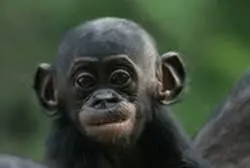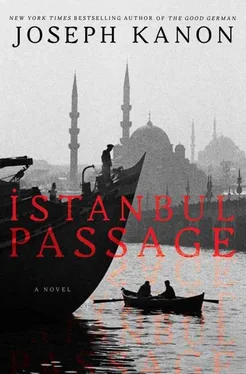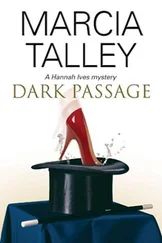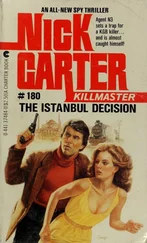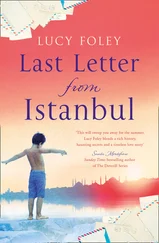“We have to leave Istanbul,” he said, his voice firmer, planning. “He thinks I’m trapped, but he doesn’t know about the money. The rest of it, just sitting there. Nobody knows. We can use it to get out. There are ways-that’s what I’ve been doing. I can do it. I’m resourceful,” he said, a rueful joke to himself. “We could go to Italy. Help Mihai with his boats again. Anywhere. We could go home.”
He leaned over, but her eyes were just as still as before and looking at them he saw that there wasn’t any home, just where they already were, in-between.
“It wouldn’t be hard to do if you came back,” he said. “For me to arrange things. Altan wouldn’t suspect. And what could he do, once we were gone. You can’t want to stay there, wherever you are. And I’d be with you. I’d never leave you. You know that. She knew that. She knew that about me. We could-”
And then he was suddenly out of breath, leaning back against the chair, knowing that none of it was going to happen, that all the plans were just a last defiant wriggle before Altan’s chains settled around him.
“I thought it was all for the best. Something I could do,” he said quietly. “For the war. No. Not just that. Exciting. I thought it would be exciting. Be one of those people at the Park.”
Feeling a tightening around his chest, not fear, something staring at him, implacable, his new life. There wouldn’t be any starting over, no new evenings together in Cihangir. What would there be to say? Both of them locked in silence for their own reasons. Even here, having to be careful everywhere. Anna lost to him now too. Then, for only a second, he thought he saw her finger move, maybe sensing it, feeling it with him, the way it would be, and he reached over and covered her hand.
“It’s going to be all right, really,” he said quickly, reassuring. “This is the best place for you and when you’re better- Don’t worry about Altan, I can handle him. He’s no worse than the rest. Look at Tommy. I just have to keep him interested. You learn these things. And actually, I’m good at this. That’s why he- I don’t want you to worry about anything.” Holding her hand tighter, his voice bright, making conversation, keeping everything from her now, not just Kay, everything he’d have to do. “You always liked it here. And you know, a Janissary, if he played his cards right, could become an important man. Wouldn’t that be a kick in the head? The last thing we expected but-” Bubbling, keeping her spirits up, away from the rest. “And we’d still have the money if we need it. So there’s nothing to worry about. We’ll be fine.” He stroked her hand. “You know, on the bridge, when I saw your face, you looked just the way you did when we first met. So that must mean something, don’t you think? Nothing’s changed.” He paused. “Not for you.” He looked away, out to the garden. “It’ll be spring soon.” In a month the Judas trees outside would start to blossom all along the Bosphorus. “You could come back for that,” he said.
He waited a minute for an answer, and then nobody said anything at all.
The horrors of Străuleşti, the sinking of the Struma , Ira Hirschmann’s heroic work for the War Refugee Board rescuing European Jews, and the tireless efforts of Mossad le Aliyah Bet (Committee for Illegal Immigration) are all matters of historical record and appear here only as background. The events and people in Istanbul Passage are fiction.
Much has changed in Istanbul since 1945. The city now sprawls beyond its hills to accommodate an estimated eleven million more people. Old tram lines have been discontinued. The fabled Park Hotel was torn down to build a parking garage (with the same fabled view). Robert College is now Bosphorus University. Street names have changed: the old Rue de Pera had already become the Istiklal Caddesi, but now Aya Paşa Caddesi, where Leon lived, is Ismet Inönü Caddesi, etc. Word spellings, in a country that has used a western alphabet only since 1928, keep taking new forms. Haghia Sophia or Aya Sofya? Abdülhammit or Abdul Hamid? Meyhanes or mihanyes? Alternative spellings extend into the Balkans too. The Black Sea port may be Constancia or Constanţa, and its country Romania, Rumania, or Roumania.
Given all this, my hope was to use only those place names and word forms current in 1945, but source materials show the same variants and inconsistencies, so in the end the usage here is whatever I felt would be most familiar to the reader or, sometimes, just personal preference. Of course, as any grateful visitor to Istanbul knows, much has not changed. Sinan’s beautiful buildings still give the city its timeless profile and the fishermen and simit sellers still line Galata Bridge.
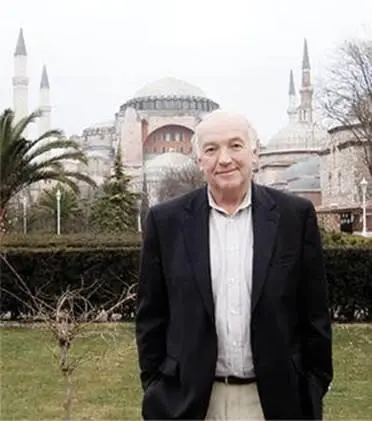
Joseph Kanon is the author of five previous novels Stardust, Alibi, The Good German, The Prodigal Spy , and Los Alamos. Alibi won the 2005 Hammett Award for Best Novel from the International Association of Crime Writers, and Kanon was the 2007 recipient of The Anne Frank Foundation Writes Award. His work has appeared in 24 languages. Before becoming a full-time writer, he was a book publishing executive. He lives in New York City.
***
